“It’s important that we get it right, and getting it right takes time.” – Brad Watts at University of Illinois Chicago School of Law conference
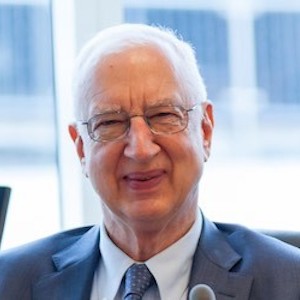 In early November, the University of Illinois Chicago (UIC) School of Law held its 65th Annual Intellectual Property Law Conference. The program consisted of five plenary sessions and ten breakout sessions featuring candid discussions and networking sessions with judges, senior government officials, and leaders of supranational IP offices, multinational corporations, law firms, academia, and nonprofit organizations. IPWatchdog’s Founder and CEO, Gene Quinn, moderated the second plenary session, “Global Patent Issues.” Click here for full event and speaker details.
In early November, the University of Illinois Chicago (UIC) School of Law held its 65th Annual Intellectual Property Law Conference. The program consisted of five plenary sessions and ten breakout sessions featuring candid discussions and networking sessions with judges, senior government officials, and leaders of supranational IP offices, multinational corporations, law firms, academia, and nonprofit organizations. IPWatchdog’s Founder and CEO, Gene Quinn, moderated the second plenary session, “Global Patent Issues.” Click here for full event and speaker details.
The program kicked off with a featured panel consisting of Andrei Iancu, Partner at Irell & Manella, Former Under Secretary of Commerce for Intellectual Property, and Former Director of the U.S. Patent and Trademark Office; the Honorable Paul R. Michel (ret.), former Chief Judge of the U.S. Court of Appeals for the Federal Circuit; and Brad Watts, Minority Chief Counsel for the United States Senate Judiciary Committee, Subcommittee on Intellectual Property. Professor Daryl Lim, Director of UIC’s Center for Intellectual Property, Information and Privacy Law, moderated the discussion.
The panel covered four main points: 1) reactions to the new appointments at the U.S. Patent and Trademark Office (USPTO), 2) patentable subject matter eligibility, 3) national innovation policy, and 4) China’s role in the global IP landscape.
Scrutinizing IP Nominees
Judge Michel warned that the U.S. IP regime is in a state of disrepair, with stakeholders losing confidence in the reliability of the patent system. He noted patent system credibility was a critical element in driving innovation where investment requires a “strong justification,” such as a reliable return on investment.
The panel discussed some of the recent nominations within the U.S. IP landscape – Kathi Vidal for Director of the USPTO and Judge Leonard Stark for Circuit Judge at the U.S. Court of Appeals for the Federal Circuit (CAFC), to fill the vacancy created by Circuit Judge Kathleen O’Malley’s departure. Concerning Judge Stark, the panel noted he was identified early on as an obvious choice to fill the spot, highlighting his experience as a litigator and trial judge and his statistics for hearing the most patent cases of any sitting district court judge. Iancu agreed that Judge Stark’s trial experience is a prominent skill that he and Judge O’Malley share. This similarity was particularly important because Judge O’Malley is currently the only sitting Circuit Judge with trial court experience, though Iancu noted he hoped this would become more of the norm than the exception.
Judge Michel, Iancu, and Watts agreed that Vidal was eminently qualified and has experience litigating across many different technologies, like her predecessor, Iancu. Watts noted her nomination would likely serve as a proxy war for intellectual property policy and may have less to do with her qualifications. Specifically, Watts noted that Senator Thom Tillis (R-NC) has publicly stated in a letter to President Biden that Tillis would not vote for confirmation of a nominee who did not support certain actions taken by Iancu as Director.
Effecting Change on Eligibility
Concerning eligibility, Iancu was optimistic about the U.S. patent regime’s future. He highlighted a report from the Office of the Chief Economist in April 2020, which found a 44% decrease in uncertainty with respect to the examination of subject matter eligibility in the 12 months following the 2019 Revised Subject Matter Eligibility Guidance. Iancu mentioned his frustration with the United States’, continuing patent eligibility problems. However, he is optimistic that the United States can and will deal with it. He noted that to achieve a true solution it is critically important that the stakeholders that want to effectuate change can come together and coalesce around a given path. Watts agreed, adding that the plan must also be feasible and realistic.
Judge Michel noted his and David Kappos’ ongoing project of working with some 65 stakeholders in drafting an IP reform proposal. However, Judge Michel cautioned not to expect even these efforts to effect change quickly, as legislation takes time. Watts echoed this sentiment. As he put it, noting the far-reaching negative effects of getting reform wrong, “We want to get it right. And getting it right takes time.”
In the interim, Judge Michel noted that the U.S. Court of Appeals for the Federal Circuit could solve a large portion of the problems if it were willing to go en banc and filter out conflicting precedent, which it has been consistently unwilling to do in recent years.
Getting it Right
The panel concluded with each panelist sharing their predictions for IP policy in the years to come and goals to improve the U.S. IP regime. Judge Michel emphasized that Congress must recognize the importance of involving and supporting private equity. Iancu said the United States needs a clear national innovation policy. Watts concluded with a simple reminder – “it’s important that we get it right, and getting it right takes time.”.
The full panel recording, along with most of the other panels, will be posted to UIC School of Law’s YouTube channel. Transcripts for the featured panel, and other panels, will be published on the conference website later this year.
We also asked our speakers to share some of their key takeaways from the conference. Following are their comments.
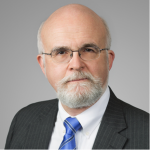 Ken Adamo
Ken Adamo
Owner, Law Office of Kenneth R. Adamo
A topic under intense current attention is that of standard essential patent (SEP) and fair, reasonable, and non-discriminatory (FRAND) licensing issues and related litigation.
A variety of issues regarding the resolution of controversies relating to the licensing and enforcement of licenses and their terms were addressed at length by the panel, including the rise of anti-suit injunctions and anti-, antisuit injunctions involving cross-border litigation. Additional issues addressed at some length included the susceptibility of SEP/FRAND controversies to reach resolution through use of ADR proceedings and techniques, possibly global in scope (e.g., a WIPO-style organization). While the level of licensing in the value chain was noted as a critical point of current friction (e.g., component level or final product level) time forced more focus on recent cases in the US (e.g., HTC v. Ericsson, Samsung v. Ericsson) and the EU (Sisvel v. Haier)
Finally, with a new team at the Department of Justice Antitrust Division and a new head of the Federal Trade Commission, promising a much more aggressive approach such as what the FTC took in FTC v, Qualcomm, there appears little chance of conflict between the two agencies. Whether the U.S. courts will also take a more antitrust– / competition law–based approach to SEP/FRAND controversies, similar to the ECJ as opposed to recent jurisprudence (e.g., FTC v. Qualcomm and Continental v. Avanci) was hinted at but yet to be seen.
How matters will develop in the next 12 months will be of great importance to both the concepts of licensing vs. competition law regarding SEP/FRAND matters, and, generally, to the future growth of interconnective – centered and necessary technologies worldwide.
 Detlef von Ahsen
Detlef von Ahsen
Partner, Kuhnen & Wacker
My takeaway from the event is that the standard essential patent (SEP) issue is a global one often decided by national courts. It is correct, however, that no court should judge over foreign countries. Yet, in my view it is time that parties agree on alternative dispute resolution (ADR) means to find fair, reasonable, and non-discriminatory (FRAND) solutions amicably on a global basis.
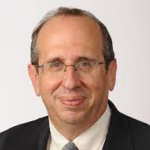 Prof. Mark A. Cohen
Prof. Mark A. Cohen
Senior Fellow and Director, BCLT Asia IP Project, UC Berkeley School of Law
Participants in my panel toured the world from Europe to India to China and back to the U.S. on divergent areas of intellectual property rights. In the short time we had, several themes emerged: (a) intellectual property practice and rights appear to be emerging in response to technological challenges, and doctrinal evolution, and less in response to political pressure; (b) civil/common law distinctions may matter less in determining what is a “best practice” for new technologies; (c) judicial/private remedies and well-reasoned cases are having an impact; (d) while the WTO may have an impact on the Covid-19 waiver in areas where there is not an international emergency (anti-suit injunctions), they are not moving forward (see the Article 63 request).
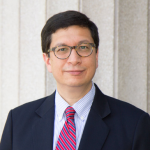 Prof. Jorge Contreras
Prof. Jorge Contreras
Professor, The University of Utah, College of Law
There are no simple answers to the many complex questions around international litigation over standards essential patents (SEPs) and fair, reasonable and nondiscriminatory (FRAND) licensing. Yet the panelists in Session 2C tackled these questions with rigor, depth, and enthusiasm.
One thing that quickly became clear in the lively discussion was that the nature of the problems faced by players in global technology markets, and any potential solutions to these issues, depends heavily on one’s particular perspective.
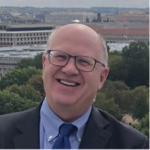 Gary Friedlander
Gary Friedlander
Senior Vice President, Deputy General Counsel – International
It was an honor to again to be invited to participate in the conference and TransUnion is pleased to be a sponsor of this premier event. I found the program to be once again very engaging and with content relevant to both in-house and law firm counsel as well as for all levels of intellectual property practitioners. The concurrent sessions included a wide range of topics and I especially enjoyed hearing informed discussions from panelists from around the globe, bringing a truly diverse set of ideas and opinions to each session. The platform chosen for the virtual event worked exceedingly well and it was easy to move from session to session and to connect with attendees. Congratulations to Professor Lim and the entire University of Illinois Chicago School of Law team on putting together another great conference!
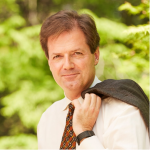 Prof. Daniel Gervais
Prof. Daniel Gervais
Milton R. Underwood Chair in Law; Professor of French; Director, Vanderbilt Intellectual Property Program; Faculty Co-director, LL.M. Program, Vanderbilt Law School
There is a real perception that both the previous Administration and the current ones have failed to provide the type of leadership that the United States had demonstrated in international IP since the 1980s. The reasons advanced to delay in making the TRIPS Agreement enforceable again by appointing Appellate Body members are increasingly unconvincing. The U.S. approach on the TRIPS waiver for COVID-19 is another example of prevarication. In an ideal world, the U.S. would not only engage but lead multilaterally in a balanced way. The artificial intelligence (AI) and intellectual property interface is one example of an area in need of greater leadership, but technological change more generally, conflicts of laws, the multiplicity of overlapping norms and treaties in the same area, and the fact that the last revision to the Berne Convention turned 50 this year, are all good reasons for leadership in updating international norms.
There is substantial disagreement as so whether AI machines (or their makers and programmers) should be encouraged to replace human authors and inventors. Replacement is of course not common as technology stands now but the process has begun. On the patent front, many jurisdictions have refused to name a machine as inventor, while others have agreed to do so. In almost every patent application, however, there will likely be a human who could be named. The real issue is the impact on innovation paths of a massive outsourcing inventive activity. That is at bottom an empirical matter on which opinions diverge.
On the copyright front, some argued during the conference that there is no need to have human novelists or songwriters if machines can do it “better.” Copyright protects all kinds of material but included in that are forms of expression that humans use to communicate with other humans, that help us make sense of our world and become agents in it, from art to literature to poetry and more. The idea that humans will delegate all or part of this function to machines that can produce more cheaply is concerning. But does the debate really matter? After all, in practice those machines will be created no matter what. Where it does matter is in deciding whether we should use intellectual property to accelerate the replacement of humans by protecting works of art or literature that have no human cause. In the U.S., this is likely to be decided by courts, not Congress.
While there is disagreement on the protection of machine outputs, on the input side there was fairly broad agreement that AI machines should benefit from a right to scan, process, and use copyrighted content, the so-called text and data mining function. Some argue that some of this should be subject to a license. Many countries around the world have defined this right in their law (EU, Japan, Singapore, etc.). In the U.S., the scope of this right is likely to be defined again by courts under the fair use doctrine, not Congress.
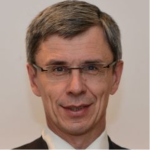 Hon. Dr. Klaus Grabinski
Hon. Dr. Klaus Grabinski
Judge, German Federal Court of Justice
University of Illinois Chicago School of Law’s Annual Intellectual Property Law Conference is one of the best ways to learn about all the latest trends in major IP jurisdictions in one or two days. Plenary sessions on general topics, like Rethinking Innovation, are followed by concurrent sessions on more specific issues, like Vaccines, IP and Global Equity or SEPs. Discussions are lively and shed light on matters from different angles. The faculty brings together judges, academics, practitioners, and stake holders from all fields of IP. For those interested in IP, the UIC School of Law’s Annual Conference is clearly an event not to be missed.
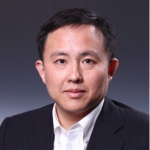 He Jing
He Jing
Founder, GEN Law
I appreciate the opportunity to exchange ideas and thoughts on some most critical issues facing all different jurisdictions. This year I was on the panel of Global Patent Issues, and I took the opportunity to share how our courts and policymakers in China are fighting through different priorities and pursuing bold missions. It is so interesting and even relieving to see how my fellow distinguished panelists shared what they are encountering. In the end, I concluded that we should all find ways to contribute to the patent system so we can continue our discussions as global patent issues.
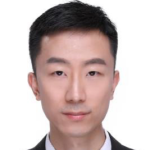 Lei Yongjian
Lei Yongjian
Partner & Attorney-at-law, Wanhuida Intellectual Property
It was my first time attending the University of Illinois Chicago School of Law’s Annual Intellectual Property Law Conference and it was a wonderful experience. Both the prep meetings and the sessions were extraordinarily well-organized. The trademark session I attended discussed a wide range of topics such as the latest legislation, well-known trademark, the initial interest confusion doctrine, functionality of trade dress, and bad-faith trademark. The discussion was detailed enough to cover all the major aspects of the topics while concise enough to keep the audience energetic. The virtual platform was immersive and user-friendly.
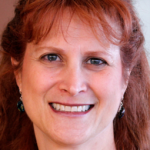 Prof. Yvette Liebesman
Prof. Yvette Liebesman
Professor, Faculty Adviser for Intellectual Property Concentration, Saint Louis University School of Law
It was a pleasure and honor to be invited to speak at the University of Illinois Chicago School of Law’s 65th Annual Intellectual Property Law Conference. As always, Professor Daryl Lim and his staff ran an incredible event, and I was fortunate to be part of a terrific panel focusing on Trademark Law. The different viewpoints led to lively and engaging conversations regarding the proposed SHOP SAFE Act, recent appellate and Supreme Court trademark decisions, and new trends involving bad-faith trademarks in China. I am already looking forward to next year’s conference.
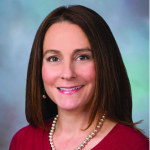 Ann Liebschutz
Ann Liebschutz
R&D Attorney, U.S. Government Affairs Expert, U.S.-Israel Science & Technology Foundation
The University of Illinois Chicago School of Law’s Annual Intellectual Property Law Conference is the forum to engage and stay current on the full spectrum of intellectual property law. Our program covers everything from the evolution of new technologies and the impact on IP policy, tracking global legal developments, to new government programs designed to drive innovation and to bring more players into the IP development domain.
I participated in the “Forces of Change Panel” where we covered a range of topics from access to educational programs, workforce development, to new United States Government (USG) research and development (R&D) programs designed to recruit and bring new and innovative companies that do not traditionally pursue government R&D programs, into the mission to serve critical government needs.
I look forward to continuing to work with our UIC Center for Intellectual Property, Information & Privacy Law and its director, Prof. Lim, to cover USG intellectual property law developments, and USG programs that are driving innovation and technology development, which is at the core of the IP profession.
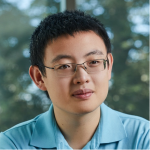 Jerry Ma
Jerry Ma
Director of Emerging Technology, U.S. Patent and Trademark Office
Bringing together a diverse mix of academic, industry, civil society, and government leaders in IP, the University of Illinois Chicago’s 65th Annual Intellectual Property Law Conference offered an illuminating two days of discussions on cutting-edge IP topics. From AI to vaccines, the topics covered at the conference will only grow in importance over the coming years. The rich international perspectives contributed by my co-panelists in the AI session were the icing on the cake.
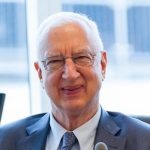 Hon. Paul R. Michel (ret.)
Hon. Paul R. Michel (ret.)
Former Chief Judge, U.S. Court of Appeals for the Federal Circuit and Advisory Board Chair, Center for IP, Information and Privacy Law, UIC School of Law
The 65th Annual IP Law Conference included a stellar array of nationally prominent experts, including former USPTO Directors Iancu and Kappos, who received this year’s Donald Dunner Leadership Award. Speakers traced the decline of IP rights, especially patents which suffered value and enforcement decreases due to “reforms” in the America Invents Act that created the IPR process in the PTAB, tilted against patent owners, and interventions by the Supreme Court making invalidations easier and injunctions rarer. The court upended its own eligibility precedents in Mayo and Alice, creating vast uncertainty that put innumerable patents under a cloud to the point they no longer look reliable to investors. The Featured Panel that opened the conference included Senate senior staffer Brad Watts who described the shifting status of efforts led by Senator Thom Tillis (R-NC) to legislate correction of these problems. Nominations of litigator Kathi Vidal to head the PTO and Judge Leonard Stark to the Federal Circuit were discussed to complete the review of recent dramatic developments. As always, the conference focused on top national and global issues in IP law.
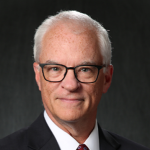 Kevin Parks
Kevin Parks
Shareholder, Leydig, Voit & Mayer, Ltd.
Although I look forward to a return to in-person conferences, I applaud the UIC School of Law on organizing a highly successful online event to mark the school’s 65th Annual IP Law Conference.
As a copyright panelist, I enjoyed robust discussions on a variety of topics—the fair use enigma; NFTs; infringement in music copyright cases; and trends in extraterritorial damages.
 Laura Peter
Laura Peter
Chief Legal Officer, Former Deputy Under Secretary of Commerce for Intellectual Property & Deputy Director, U.S. Patent and Trademark Office
I was delighted to moderate the distinguished leaders from the corporate IP world for the Corporate Counsel Session. Our panel touched on the topics of artificial intelligence issues, and innovation expansion. The view from the corporate world so is connected with business issues, and our panelists gave such informative and enthusiastic commentary. Thank you to Professor Daryl Lim for inviting me to bring the in-house view on these hot topics, adding to the diversity and scope of the views presented at the UIC School of Law’s Annual IP Law Conference.
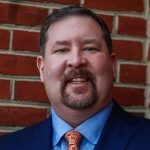 Gene Quinn
Gene Quinn
President & CEO, IPWatchdog, Inc.
As pointed out by Mr. Andrei Iancu, “the patent system is under increasing attack from different angles both in the U.S. and globally.” The TRIPS waiver is of great concern to all patent owners because if patent rights can be stripped from life science innovators who saved the world by producing vaccines and pills to fight COVID-19 within 12 months of the outbreak of the pandemic, then no patent rights are safe. As Justice Grabinski of the German Supreme Court observed, patents are an exclusive right, and that must be respected. Unfortunately, too often it seems Judges operated as policymakers, something brought up as a concern by the soon retiring Judge O’Malley of the Federal Circuit who has said she is retiring rather than taking senior status so she can get her First Amendment rights back. So, stay tuned for more from Judge O’Malley in 2022.
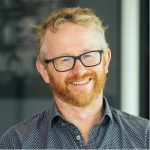 Gwilym Roberts
Gwilym Roberts
Chairman, European Patent Attorney, Kilburn & Strode LLP; Honorary Professor, Centre for Commercial Law Studies, Queen Mary University of London
My feeling is that the University of Illinois Chicago Annual IP Law Conference brings together some of the biggest names globally in IP to look at the most important topics around. It benefits from an unusually strong combination of academic, governmental, and practitioner specialists meaning that a genuinely balanced point of view can be arrived at.
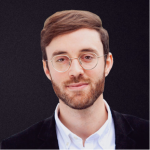 Prof. Dr. Thibault Schrepel
Prof. Dr. Thibault Schrepel
Associate Professor, VU Amsterdam University; Faculty Affiliate, Stanford University CodeX Center; Peer Reviewer, Stanford Journal of Blockchain Law & Policy; Invited Professor, Sciences Po; Peer Reviewer, MIT Cryptoeconomic Systems; Associate Researcher, Université Paris 1 Panthéon-Sorbonne
I rarely find myself sharing a panel with public officials, industry representatives, and academics. I, even more rarely, have the pleasure to engage in a constructive discussion with all these groups at once. I learned a great deal from this event and hope to have advanced the cause for computational antitrust. Professor Daryl Lim, thank you so very much for the opportunity. And long live the UIC School of Law’s Annual IP Law Conference!
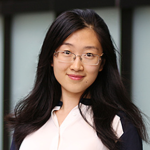 Prof. Dr. Wang Runhua
Prof. Dr. Wang Runhua
Associate Professor, University of Science and Technology Beijing
For harmonization and domestic demand, China is active in legislation on IP and data protection, including but not limited to patent law, copyright, cyber security law, and personal information law. However, the enforcement of those laws in China still has problems of inconsistency or uncertainty, which are aggravated by new challenges that cutting-edge technologies bring in this new era. To learn the latest judicial policies and how the law is interpreted in China, law practitioners can follow guiding cases released by the Supreme People’s Court.
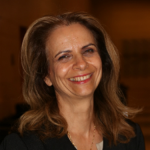 Prof. Dr. Shlomit Yanisky-Ravid
Prof. Dr. Shlomit Yanisky-Ravid
Senior Law Faculty Member, Ono Academic College Law School; Visiting Professor of Law, Fordham University School of Law
I would like to thank Professor Daryl Lim and all the staff for organizing the University of Illinois Chicago School of Law’s 65th Annual Intellectual Property Law Conference.
Besides being perfectly organized, the discussions were thought-provoking and focused on the most cutting-edge issues and challenges within the intellectual property regime.
As a professor of law that focuses on advanced technology AI and blockchain, I was honored and privileged to participate in the Technology & Privacy panel. The moderator, Ms. Marta Belcher (Protocol Labs), did a wonderful job by asking challenging questions about diverse aspects of IP, technology. and privacy. We discussed not only the challenges of blockchain, smart contracts, NFT, post-GDPR effect, but also new models and solutions. The participants in the panel, Charisse Castagnoli (Instapay Flexible) Stuart Loh (Twingate) Ryan Phelan (Marshall, Gerstein & Borun LLP) Houman Shadab (NYLS), discussed different IP, technology and privacy innovative issues, which shall be considered as must know in order not to stay behind. I enjoyed the conference, much beyond my panel, due to the esteemed professional speakers, and the profound understanding and analysis of substantive intellectual property issues that they addressed. Thank you, Professor Daryl Lim, and thanks to the IP Fellow, Mr. Adam Ernette, for the tremendous efforts to set such an impressive conference. I cannot wait for next year.

![[IPWatchdog Logo]](https://ipwatchdog.com/wp-content/themes/IPWatchdog%20-%202023/assets/images/temp/logo-small@2x.png)
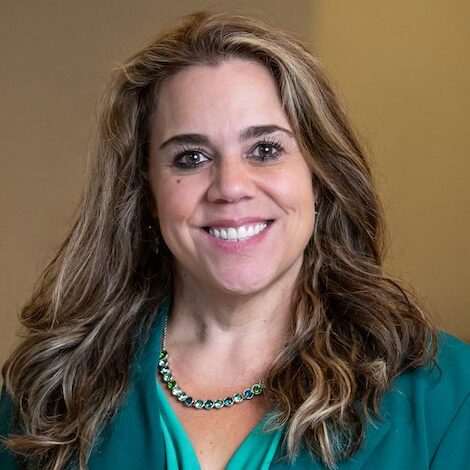
![[Advertisement]](https://ipwatchdog.com/wp-content/uploads/2024/04/Artificial-Intelligence-2024-REPLAY-sidebar-700x500-corrected.jpg)
![[Advertisement]](https://ipwatchdog.com/wp-content/uploads/2024/04/UnitedLex-May-2-2024-sidebar-700x500-1.jpg)
![[Advertisement]](https://ipwatchdog.com/wp-content/uploads/2024/04/Patent-Litigation-Masters-2024-sidebar-700x500-1.jpg)

![[Advertisement]](https://ipwatchdog.com/wp-content/uploads/2021/12/WEBINAR-336-x-280-px.png)
![[Advertisement]](https://ipwatchdog.com/wp-content/uploads/2021/12/2021-Patent-Practice-on-Demand-recorded-Feb-2021-336-x-280.jpg)
![[Advertisement]](https://ipwatchdog.com/wp-content/uploads/2021/12/Ad-4-The-Invent-Patent-System™.png)






Join the Discussion
2 comments so far.